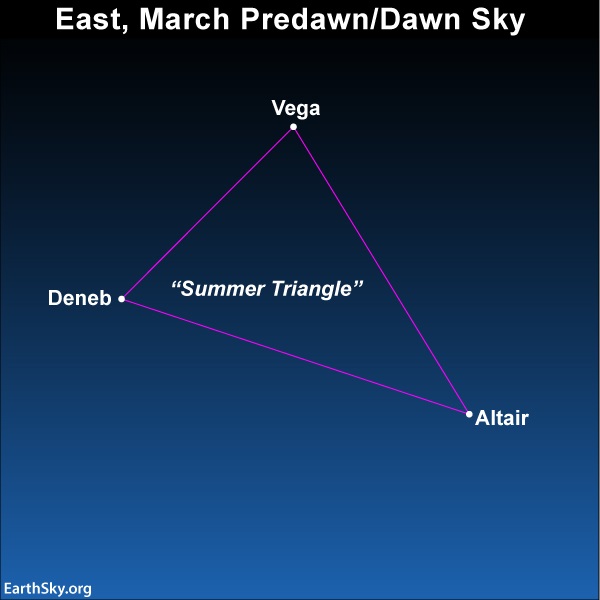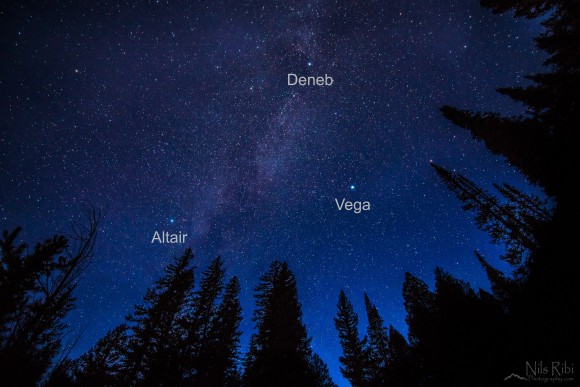
Summer Triangle: Watch before dawn
Before sunup on March mornings, look for the Summer Triangle. Although it’s not summer at our northern latitudes, the Summer Triangle’s three bright stars – Vega, Deneb and Altair – are visible now in the east before sunrise. They’re all 1st-magnitude stars and the brightest stars in their constellations: Vega in Lyra the Harp, Deneb in Cygnus the Swan and Altair in Aquila the Eagle.
The Summer Triangle isn’t one of the officially recognized 88 constellations. Like the Big Dipper, it’s what’s called an asterism, a pattern of stars that’s easy to pick out.
For much of the Northern Hemisphere, the Summer Triangle stars are up for at least part of the night every night of the year. Are you in the Southern Hemisphere? You probably won’t see the entire Summer Triangle yet before sunup from your part of the world. The star Deneb will probably be lost in the glare of sunrise at southern temperate latitudes.
To gauge the size of this signpost star formation, hold a one-foot ruler an arm’s length from your eye. The ruler (about 1/3 of a meter) pretty much fills the gap between Vega and Altair, the Summer Triangle’s first- and second-brightest stars, respectively.

Shift to northern summer solstice
Like all the stars, the stars of the Summer Triangle rise four minutes earlier with each passing day, or two hours earlier with each passing month. Why is this happening? It’s happening because Earth is orbiting the sun, and our night sky is pointing outward toward an ever-changing panorama of stars.
Around May Day – May 1 – the Summer Triangle will climb over the eastern horizon around local midnight (1 a.m. daylight saving time).
When middle to late June comes rolling along, you’ll see the Summer Triangle sparkling in the east at evening dusk. Watch for it around the time of the June solstice. It’s a sure sign of summer’s return to the Northern Hemisphere.
EarthSky astronomy kits are perfect for beginners. Order today from the EarthSky store
Enjoying EarthSky so far? Sign up for our free daily newsletter today!

Bottom line: Watch for the three bright stars of the Summer Triangle – Vega, Deneb and Altair – before dawn in March, before midnight in May and at dusk on the summer solstice.
Donate: Your support means the world to us
The post Summer Triangle, signpost for all seasons first appeared on EarthSky.
0 Commentaires